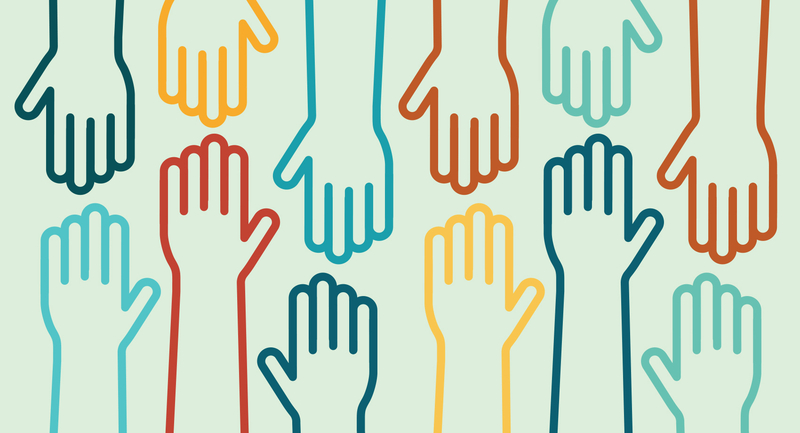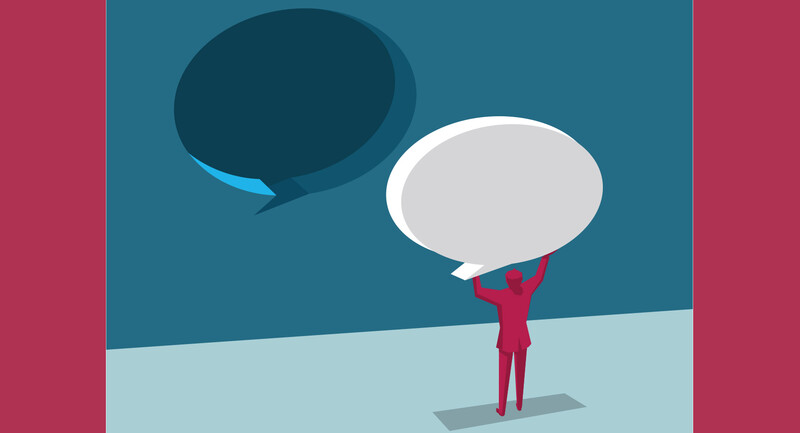Humans spend a lot of time and money trying to improve. We go on diets, take master classes, buy gym memberships, etc.—all so we can have better lives or a greater impact. Yet one aspect of our lives that might have a huge impact on our efficacy often goes ignored. I'm convinced we could dramatically improve our professional and personal lives if we commit to doing conversation workouts.
Effective communication is essential for our professional success. Whatever people's role in life, our ability to make a difference depends on our ability to make connections. What's more, how people come together in conversation has a significant impact on the learning that happens in our schools—for both children and adults. Learning occurs within relationships. The healthier the relationship, the more learning takes place.
The same can also be said for our lives. Our best days and worst days almost always involve conversations with others. If we can improve our interactions in just a small way, we should experience better conversations with family and friends, and as a result, live better lives.
What's a Conversation Workout?
Just like working out in a gym, a conversation workout involves committing to a plan, learning new skills, and then practicing and getting feedback until we become proficient at those skills. At the gym, people might learn the best way to lift weights or do exercises. In a conversation workout, we learn about beliefs, skills, and habits we can use to have better conversations. Then we keep working until we become proficient in those skills and habits.
I've been studying conversation for decades. To write my book Better Conversations (Corwin, 2015), I read works by dozens of wise researchers and journalists and learned from more than 100 people who tested the conversational tools I created. Here, based on my research and experience, are four starting points for any conversation workout.
1. Ask real questions. When we ask a real question, we are genuinely interested in what our conversational partner thinks or feels. Real questions are honest and unassuming. They're not our opinions with a question mark at the end of them. Real questions give power to our conversation partners by inviting reflection, exploration, and clarification.
2. Really listen. In her book, You're Not Listening, Kate Murphy (Celadon Books, 2020) explains that we struggle to listen because people talking usually speak at a much slower pace compared to how quickly our brains process their words. As a result, our ever-active brains get restless, and we lose track of what's being said. Additionally, we live in a time when interruption is a culturally accepted norm—just watch a political conversation on television—and we are surrounded by digital distractions, beeping at us for our attention.
Despite these challenges, listening remains an essential communication skill. Recently, I asked instructional coaches on Twitter to describe how their life had improved as a result of learning to coach. More than 75 percent of the people who responded said the most important change in their lives was learning to listen.
Really listening means that, at least temporarily, we suspend our desire to be heard, so we can hear what our conversation partner says—and, in fact, notice what sometimes isn't said. To really listen, we stay fully present in the conversation and let go of the need to control it. We communicate that we believe the other person has something to say, and we communicate respect. Our conversation partners can see and feel that we're genuinely interested in them. One benefit of really listening is that often we find ourselves in a conversation where our partner is truly interested in what we have to say.
3. Think the best of other people (stop judging). No doubt our evolutionary inheritance has wired our brains to be judgmental. We're quick to judge our friends and coworkers. The trouble is, judgment is destructive in so many ways. Most of us don't want to get close to people who make us feel like we're bad people, and it's hard to learn from people who roll their eyes when we talk, whether they do so literally or not. Moralistic judgment kills intimacy, and it kills learning.
I'm not sure that we can ever completely stop judging, but if we understand where our judgments come from, we can limit their destructive impact. In his book Non-Violent Communication: A Language of Life (Puddle Dancer Press, 2015), Marshall Rosenberg contends that our moralistic judgements are actually expressions of our own unmet needs. If we can explore what needs are buried in our judgments, we should be better able to regulate our negative evaluations of others, making it easier for people to connect and learn with us.
4. Foster trust. In Better Conversations, I identified five variables that build or damage trust: character, reliability, competence, warmth, and stewardship. We trust people who are honest and transparent, who do what they say they will do when they say they will do it, and who do their work effectively. We trust people who are positive, kind, and respectfully affectionate. We also trust people who demonstrate goodwill toward us. Educators can foster trust by working on any of these variables.
Real questions are honest and unassuming. They're not our opinions with a question mark at the end of them.
How to "Work Out" with These Ideas
Read with an action mindset. There are many great books about communication, but simply reading the words likely won't change how we think and act. To have better conversations, we must read with the intent to internalize what we read. Then, we need a plan to make those words become our reality.
Start small. When we read new ideas about communication, we may be tempted to try everything at once. To foster trust, for example, we could plan to address all five variables just discussed. That approach likely won't work. Pick one idea and practice it until you become proficient, then move on to something else.
Pay attention. Life comes at us fast, and it's very easy to miss key noticings. To have better conversations, we need to pay attention. I've found it useful to record in a journal what basically happens in my conversations—even for just one day—and how well I succeed or flop at a targeted skill. This practice can help you better understand your triggers and what tends to distract you, so you can better regulate your behavior in conversations.
Use video. Seriously. Record a conversation with an intimate partner or a work colleague you feel trust with, and watch it for insight on your talking tendencies. If we spend thousands of hours working out to improve our bodies, shouldn't we do the same to improve our relationships? Video is an essential part of a conversation workout because most of us don't have a clear picture of how we do what we do. Video reveals us as we really are. Sometimes it's a joy to see, sometimes a disappointment. But if we want to get better, we need to see our conversations realistically. That includes seeing, through ongoing videos, that we are improving.
Listening Respectfully
To really listen, stay fully present in the conversation and let go of the need to control it. Communicate that you believe the other person has something to say, and communicate respect.
Learnable—and So Worth It
Better beliefs, skills, and habits for interacting are learnable. We can learn to be better communicators in the same way we learn to play a sport or cook a dish. Working out to be a better communicator helps us be better professionals, and in an era when conversations seem harder than ever, better conversations are even one way we can help create a better world. More impact, a better life, a better world; that seems like a workout worth doing.
Instructional Coaching Guide
Jim Knight outlines seven "success factors" for great instructional coaching.










